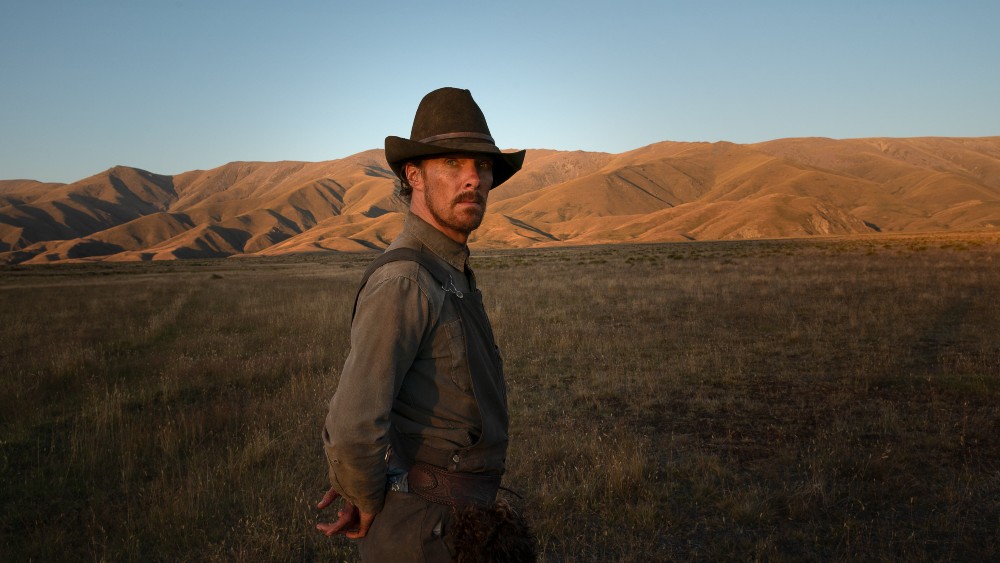
When film editor Peter Sciberras first heard that Jane Campion wanted to meet with him to discuss a film titled The Power of the Dog, he wasn’t familiar with the source material. A quick Google search yielded the Don Winslow book of the same name, which led him to initially think that Campion was making a cartel movie. Though that didn’t turn out to be the case, he was still surprised when he learned that Campion would be adapting Thomas Savage‘s 1967 novel for the screen.
Set in 1925, the story follows a pair of cowboy brothers, Phil and George Burbank, played by Benedict Cumberbatch and Jesse Plemons, who meet Rose (Kirsten Dunst) and her sensitive son, Peter (Kodi Smit-McPhee), at a local Montana restaurant, where tough-guy Phil promptly makes both of them cry. George ends up comforting Rose and though he eventually marries her, Phil continues to taunt her as he takes Peter under his wing and tells him of his mentor, a mysterious man named Bronco Henry.
The Academy responded well to The Power of the Dog, showering it with 12 Oscar nominations, including one for Sciberras’ exemplary editing. Though Sciberras said he was honored to be nominated for an Academy Award, he told Below the Line that he’s disappointed in the Academy over its decision to give out the Oscar for Best Editing an hour prior to the start of the live telecast.
“It’s pretty disappointing, in a sense, to not have the classic Oscar moment,” said Sciberras, though he won’t let the decision (if it even stands) rain on his parade. This is a major moment in his career and we’re glad he was able to take a few minutes to share his story with Below the Line.
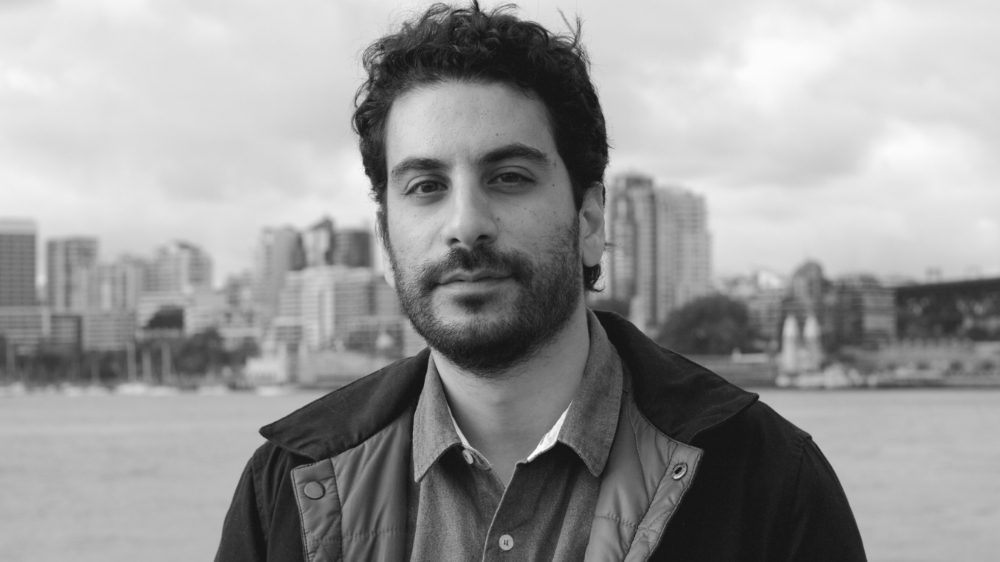
Below the Line: How did you first become involved with The Power of the Dog?
Peter Sciberras: I heard from See-Saw Films, which is one of the production companies on this, and got an email saying that Jane would like me to read the script and meet, potentially. It wasn’t an email I was expecting, to be honest, because I know Jane’s longtime editor and I assumed he’d be doing it, so it was a bit of a surprise. I read the script and loved it. I love Jane’s work. Obviously, The Piano was one of the first films that blew my mind, especially films from my home part of the world, Australia and New Zealand. So yeah, it was really exciting and the script was amazing. I’d never met Jane [so] I flew to Sydney. We sat down for three hours, went through the script, the lookbook, and just the general feeling of the film. I got the job two or three days later. It was kind of an interview, I think. But luckily, it went well.
BTL: How was it working with an Oscar-winning filmmaker such as Jane Campion?
Sciberras: Amazing. She’s such a great artist — incredibly visionary, distinct point of view. But also, an amazing collaborator who really wants your best and really, really wants you to put everything into it, which I’m more than happy to do. Her energy and her tenacity to kind of keep the process going and just get to the place she wants to go is so inspiring that there’s really no other way. So yeah, it was amazing. She’s also really funny, which is great, so it was a good time in the room.
BTL: Were you familiar with Thomas Savage’s book at all before signing onto the film?
Sciberras: No, I’d never heard of the book. I remember when I first Googled it, there’s a Don Winslow book, which has the same name. I was like, ‘Oh, that’s interesting — Jane doing a cartel movie [laughs]. It’s not what I expected.’ I quickly read the author’s names and was like, ‘that’s a different The Power of the Dog.’ I read a little about it and I was like, ‘ah, that that makes more sense.’ But even still, it was surprising, [because] such a film about men, these cowboys, is really unexpected for Jane, or from what I expected Jane to be focusing on. But no, I still haven’t read it.
I make a point not to read it if I haven’t read it already, just to not be able to fill in the blanks in a way that the audience won’t be able to, so I feel like it’s a good thing for the editor to not know the source material and just deal with the director’s vision and the script. I did want to read it afterward because I’ve read passages. Ari Wegner, the DP, had a copy of it. We were on a drive somewhere and she had a copy of it. She was kind of pointing out passages of certain bits that were in the film [and] the way they were written. It sounded exquisitely written. It is something I definitely want to read at some point but I have a one-and-a-half-year-old and another film I’m cutting right now so it’s been a bit too hectic to get to it. I’m not the biggest reader. I’m an avid watcher.
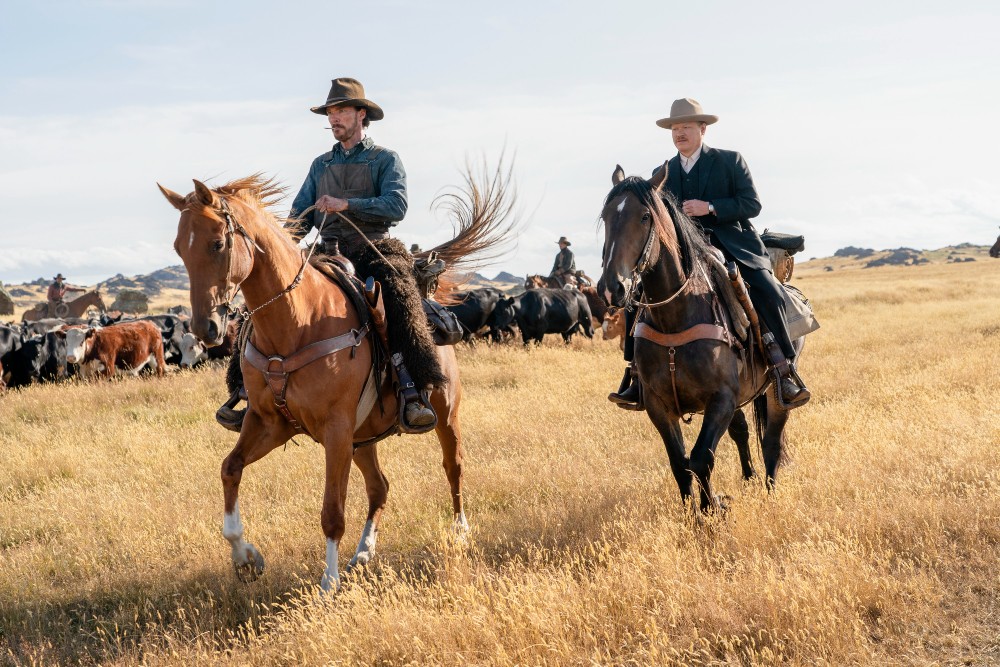
BTL: I know it can be so hard to find that free time to read…
Sciberras: Yeah, unless it’s part of your day-to-day. I know a lot of people read before bed but I’ve never been that kind of guy. It’s kind of like I need to, actually, if I have spare time, and it virtually never happens.
BTL: How honored were you to receive an Oscar nomination last month?
Sciberras: Honored, definitely very honored. Pretty surprised, in a sense. I don’t know why. I mean, I guess you just don’t expect it to happen even though it’s been coming for a while and the awards season is so — I actually hadn’t realized how long it was before this process. There are a lot of indicators or things along the way, but it was [still] a surprising honor. Kind of surreal being from Melbourne, not in this world that I’ve been kind of invited into [and] is quite foreign to me, in a sense. So yeah, quite amazing to be recognized. Also, the ACE Awards — the Eddies — when I got that nomination a few weeks before that, I was so honored to be recognized by my peers, which is something everyone likes [laughs]. It’s not a bad feeling. Everything so far has been incredibly surprising and I’m very grateful for the attention.
BTL: Last month, the Academy announced that the Oscar for Film Editing would be presented an hour before the start of the live telecast. How did that make you feel?
Sciberras: Being my first time, it’s pretty disappointing, in a sense, to not have the classic Oscar moment. I’ve read a little about how it’s going to be presented and I kind of get what’s trying to happen, but yeah, it’s disappointing. I feel like it can’t but diminish the award a little bit, but it is what it is, in a sense, as well. I’ll let the guilds and everyone else kind of really get into that.
BTL: Do you prefer working off of dailies, or waiting for principal photography to wrap so you can have all the footage before starting in on a project?
Sciberras: Definitely dailies, every day. It’s kind of my favorite part of the — not my favorite part of the process because my favorite part of the process is definitely when the director gets it, but it really is a lovely bit of the process where it’s like you’re getting presents every day and you’re just kind of unwrapping them every morning and you’re kind of seeing what you’re dealing with.
And then sometimes you get some presents that are amazing and you’re like, ‘Wow, this is so cool.’ And other days you’re like, ‘Oh, wow. Okay, this present is… interesting [laughs]. Okay. [Let’s] see what I can do with that.’ It’s nice. It’s also just a really — this was, I think, an eight-week shoot and it’s just [enough] time to really start to understand and learn what the director is after, what they’re doing, what tone they’re searching for. I’m definitely a dailies person. I’d hate to come in with a bounce of the whole shoot.
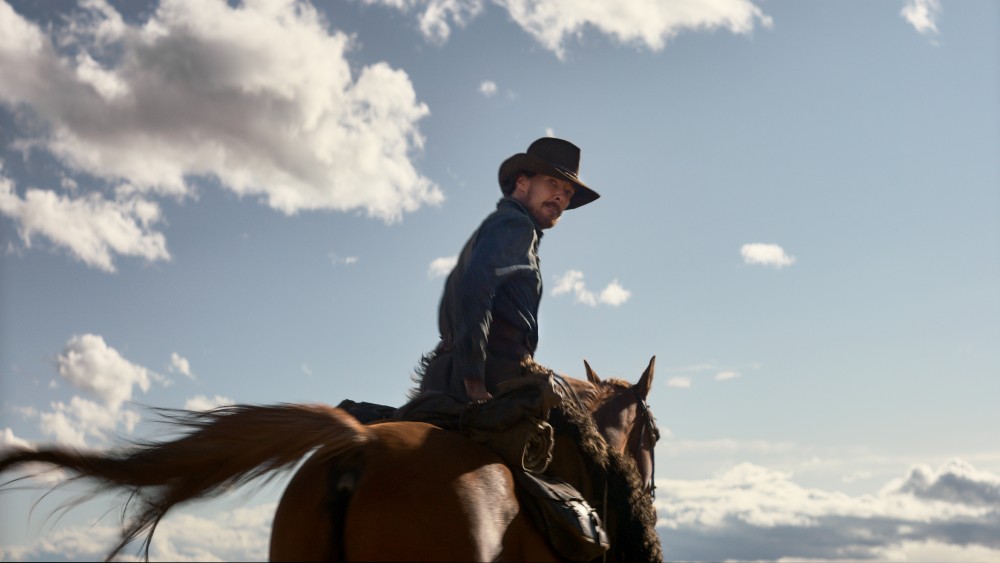
BTL: How did you keep yourself busy during the production shutdown?
Sciberras: It actually came at kind of a good time for me, in the sense that my wife was pregnant with my first child. I’m pretty busy generally so it was kind of amazing to have three months to just hang out and be there for all of that. It was really great, but also kind of the first little bit where it was like, ‘Is this film coming back?’ [nervous laughter] Is anything coming back, let alone the film, was terrifying. But then we got a sense that okay, New Zealand’s doing quite well, the shoot will probably come back. That definitely took the sting out a little bit. I did have a lot to keep me going. I had a lot of dailies to play with so I kind of would spend a few hours staying in the project here and there and passing time, and go into the office to get out of the house.
BTL: How long after production wrapped did you have a rough cut available?
Sciberras: Not long, actually. Maybe a week, week-and-a-bit. I mean, I had to get to New Zealand so there were two weeks of quarantine involved in that. I think Jane watched that right before I went and then we started working as well in quarantine. I think a week, a week-and-a-half, I would say.
BTL: Do you have a preferred editing system?
Sciberras: I always cut on Avid. That’s the only program I know how to use properly.
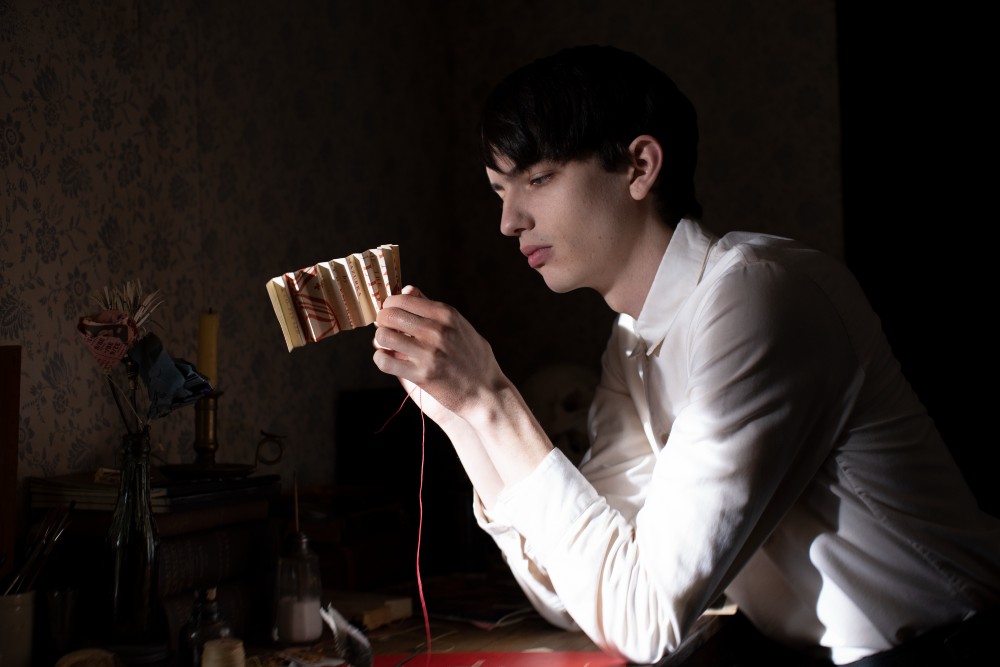
BTL: What was the most challenging sequence of the film to edit?
Sciberras: I think the most challenging would have been the scene where Peter walks through the men at the haymaking camp where all the seasonal workers are. It’s just such a complex scene, both in content and geography and structure. We had a lot of options there. It was also really important to play the dialogue in such a way that it was ambiguous in the right way, inviting the audience to be wondering what Phil was up to in the same way that Peter and Rose are. Also, just to find the right balance for those little looks to Rose in the background and just kind of keep all the balls in the air and keep all the options open. It ended up being played quite wide, [which] kind of felt like the right way to do it — to kind of stand back and look rather than be seduced by close-ups, and just to see both characters in the frame at the same time. There were a lot of options. We had a lot of versions of that scene before we got to the end.
BTL: And finally, what were the challenges that came with editing during a pandemic?
Sciberras: Curveballs. Lots of breaking of momentum. That’s probably the biggest one. I was based in Sydney while we were cutting the end part of the film, well, the last together. My wife and kid were in Melbourne. Usually, I’d go home on a Friday night, come back on a Sunday night and that’s regular. Every two weeks, it would be like, ‘Oh, now there’s an outbreak here, you better not travel, they might shut the borders.’ It just became so disjointed. Staying connected to family was really hard, and at a time where it was kind of crucial because my son was only four or five months old at the time. It’s really a little stressful. Stress would be a big one, too.
Hopefully, the stress was worth it, as The Power of the Dog is currently up for 12 Oscar nominations. You can watch it now on Netflix.





